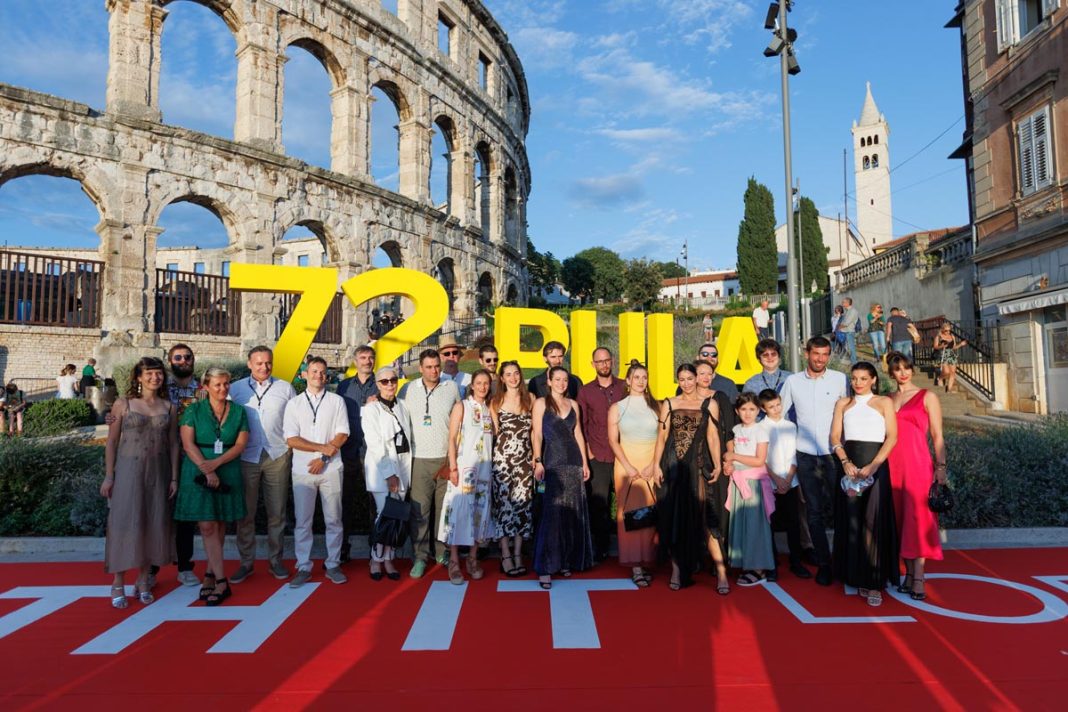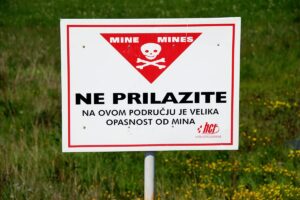PULA, CROATIA – With a packed Arena and a summer breeze swirling through its ancient stone arches, the 72nd Pula Film Festival opened Thursday night with music, emotion, and a subtle changing of the guard. The historic projection booth, which has stood for over 50 years, was honoured one last time before making way for a sleek, modern upgrade in 2025.
“We must adapt to new conditions and technologies,” said Festival Director Tanja Miličić, as she bid farewell to the structure that has become a silent icon in countless photographs.
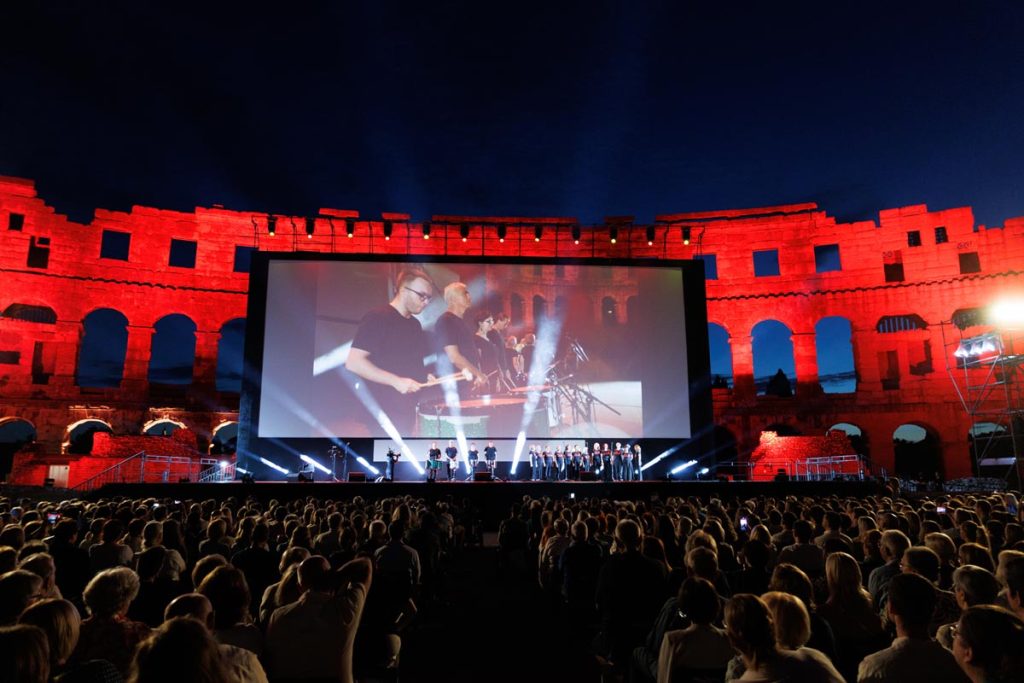
President of Croatia Zoran Milanović, accompanied by First Lady Sanja Musić Milanović, joined a distinguished crowd including State Secretary Krešimir Partl, Pula Mayor Peđa Grbin, and Istria County Prefect Boris Miletić. Their presence underlined the cultural weight of the event—Pula is not just a festival, it is Croatia’s cinematic heartbeat and a point of regional pride.
Music, Memory & Meaning
Opening ceremonies included a live performance of the Croatian anthem by Damir Urban, joined by guitarist Luka Toman, and a moving rendition of Istria’s anthem “Krasna zemljo, Istro mila.” The night was rich in symbolism, as members of Istria’s Antifascist Association raised flags, anchoring cinema in the region’s broader identity narrative.
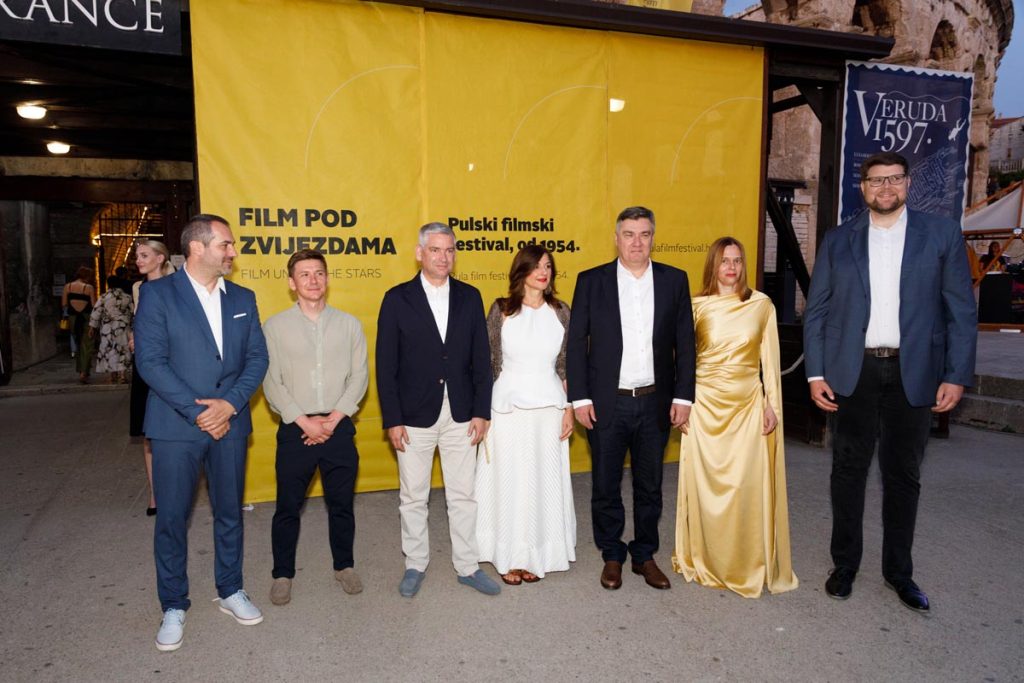
The evening also saw the Marijan Rotar Award given to long-time technical coordinator Miodrag Flego, honouring a legacy of invisible labour that keeps the lights on and the reels turning. “This award is for my late father, Mladen,” he said emotionally, before officially declaring the festival open.
What’s On This Year
The festival features 11 Croatian films in the national competition and 7 minority co-productions, curated by Artistic Director Danijel Pek and Programme Editor Mario Kozina, with an emphasis on accessibility—no matter the genre. The Golden Arena jury includes actress Tihana Lazović, screenwriter Jelena Paljan, editor Tomislav Pavlic, actor Janko Popović Volarić, and director/cinematographer Silvestar Kolbas.
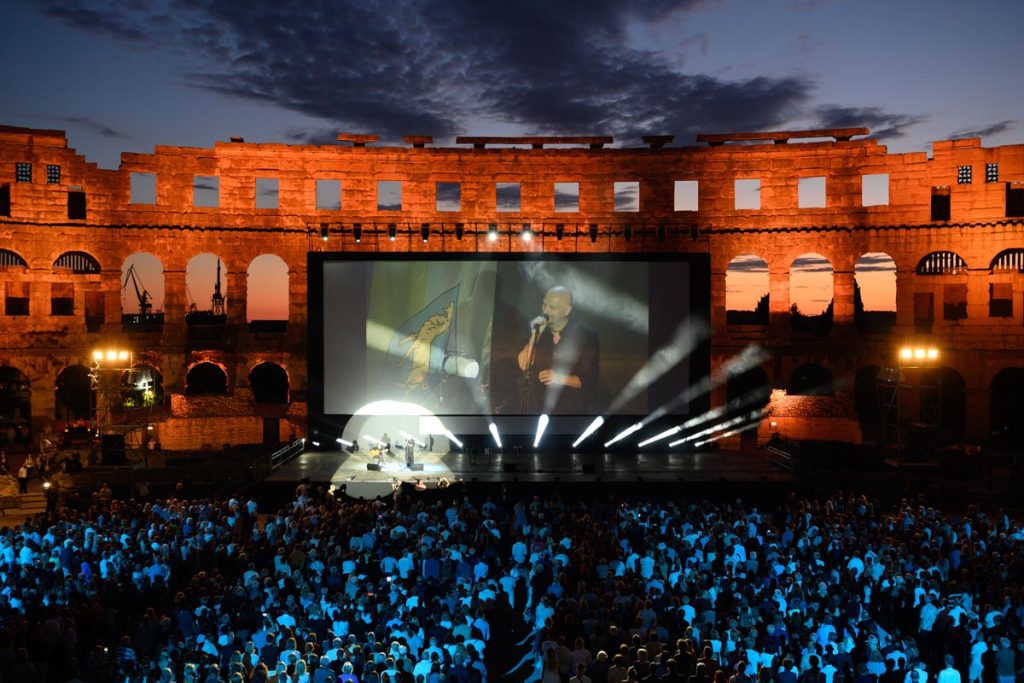
The festival also promises lively debates, panels, critical showdowns, and open-air concerts, making Pula more than just a cinema—it’s a town in dialogue with the world.
Why It Matters for the Region
In a region where cultural soft power is still an underplayed card, Pula Film Festival remains one of the Adria Region’s most visible and resilient cultural platforms, offering a stage where local stories compete not just for prizes but for permanence. With many countries in the region still building or rebuilding their cultural diplomacy frameworks, Croatia has in Pula a flagship event that merges heritage, innovation, and international visibility.
As other Adria cities—from Sarajevo to Herceg Novi—host their own summer film festivals, Pula’s staying power is a reminder that culture, when rooted deeply, can outlive political cycles and economic shifts.
Adria Insight
Cinema as Infrastructure: For policymakers and investors looking to strengthen regional ties, investing in cultural infrastructure—like permanent festival venues, mobility for filmmakers, or co-production funds—could be as vital as transport or energy grids. As the film booth retires in Pula, it leaves behind a metaphor: when the frame changes, the story survives.

